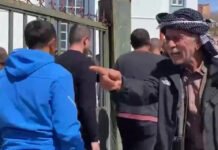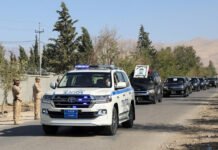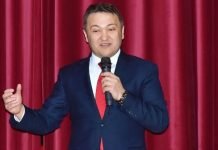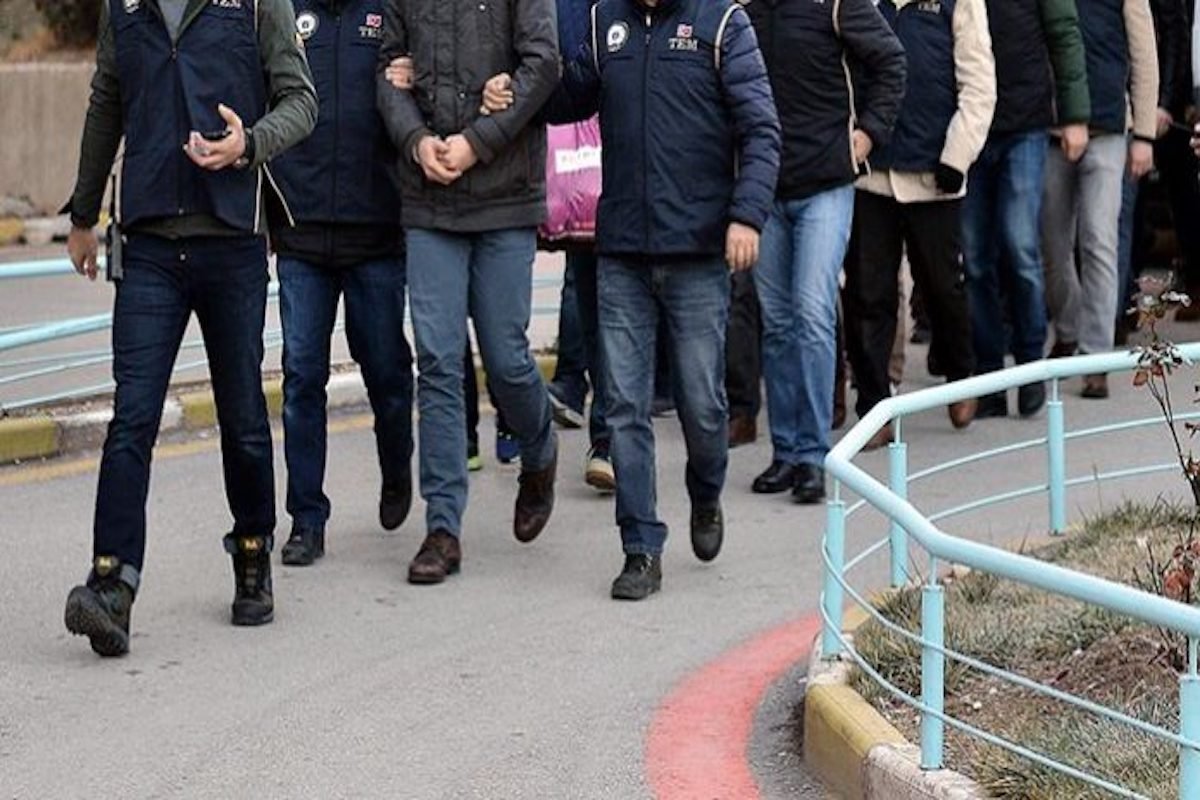An annual report of the Amnesty International (AI) draw attentions to increase in cases of torture and other ill-treatments in police detention, from curfew areas in southeast Turkey and then more markedly in Ankara and İstanbul in the immediate aftermath of the coup attempt. Investigations into abuses were ineffective.
According to “Amnesty International Report 2016/17: The State of the World’s Human Rights”, an attempted coup prompted a massive government crackdown on civil servants and civil society. Those accused of links to the Gülen movement were the main target.
President Recep Tayyip Erdogan has started a witch hunt campaign to root out alleged supporters of Fethullah Gülen, the US-based Turkish Muslim intellectual who has been a vocal critic of Erdogan on corruption and aiding and abetting armed Jihadists in Syria. Gülen, dubbed as one of “The World’s Top 20 Public Intellectuals” in a list put together by the magazines Foreign Policy and Prospect in 2008, has inspired a civic movement called Hizmet (Service) which focuses on science education, community involvement, interfaith and intercultural dialogue.
The Amnesty’s annual report summarized the dire situation in Turkey as “Over 40,000 people were remanded in pre-trial detention during six months of emergency rule. There was evidence of torture of detainees in the wake of the coup attempt. Nearly 90,000 civil servants were dismissed; hundreds of media outlets and NGOs were closed down and journalists, activists and MPs were detained. Violations of human rights by security forces continued with impunity, especially in the predominantly Kurdish southeast of the country, where urban populations were held under 24-hour curfew. Up to half a million people were displaced in the country. The EU and Turkey agreed a “migration deal” to prevent irregular migration to the EU; this led to the return of hundreds of refugees and asylum-seekers and less criticism by EU bodies of Turkey’s human rights record.”
According to Amnesty’s report, the state of emergency removed protections for detainees and allowed previously banned practices, which helped facilitate torture and other ill-treatment: the maximum pre-charge detention period was increased from four to 30 days; and facilities to block detainees’ access to lawyers in pre-charge detention for five days, and to record conversations between client and lawyer in pre-trial detention and pass them to prosecutors were introduced. Detainees’ access to lawyers and the right to consult with their choice of lawyers – rather than state-provided lawyers – was further restricted. Medical examinations were carried out in the presence of police officers and the reports arbitrarily denied to detainees’ lawyers.
The Amnesty report has emphasized on the fact that no national mechanism for the independent monitoring of places of detention existed following the abolition of the Human Rights Institution in April, and the non-functioning of its successor body. It added that “the Council of Europe Committee for the Prevention of Torture visited detention facilities in August and reported to the Turkish authorities in November. However, the government did not publish the report by the end of the year. The UN Special Rapporteur on torture visited in November, after his visit was delayed on the request of the Turkish authorities.”
Reminding that the authorities professed their adherence to “zero tolerance for torture” policies but on occasion, spokespeople summarily dismissed reports against them, stating that coup plotters deserved abuse and that allegations would not be investigated, Amnesty report continued: “The authorities accused Amnesty International and Human Rights Watch of being tools for the “FETÖ terrorist organization” following the NGOs’ joint publication on torture and ill-treatment. Three lawyers’ associations that worked on police violence and torture were shut down in November under an executive decree.”
Some excerpts from Amnesty’s annual report as follows:
“Lawyers said that 42 people, detained in Nusaybin in May after clashes between PKK-affiliated individuals and state forces were beaten and subjected to other ill-treatment in police detention. They said that the group, which included adults and children, were hooded, beaten during police interrogation and not able to access appropriate medical care for their injuries.
Widespread torture and other ill-treatment of suspects accused of taking part in the coup attempt was reported in its immediate aftermath. In July, severe beatings, sexual assault, threats of rape and cases of rape were reported, as thousands were detained in official and unofficial police detention. Military officers appeared to be targeted for the worst physical abuse but holding detainees in stress positions and keeping them handcuffed behind their backs, and denying them adequate food and water or toilet breaks were reported to have taken place on a far wider scale. Lawyers and detainees’ relatives were often not informed that individuals had been detained until they were brought for charge.
Until June, the security forces conducted security operations against armed individuals affiliated to the PKK, who had dug trenches and erected barricades in urban areas in the southeast of Turkey. The authorities’ use of extended round-the-clock curfews, a total ban on people leaving their homes, combined with the presence of heavy weaponry including tanks in populated areas, was a disproportionate and abusive response to a serious security concern and may have amounted to collective punishment. Evidence suggests that the security forces’ operated a shoot-to-kill policy against armed individuals that also caused deaths and injuries to unarmed residents and widespread forced displacement.
The entrenched culture of impunity for abuses committed by the security forces remained. The authorities failed to investigate allegations of widespread human rights violations in the southeast, where few or none of the basic steps were taken to process cases, including deaths, and in some instances witnesses were subjected to threats. In June, legislative amendments required the investigation of military officials for conduct during security operations to be subject to government permission and for any resulting trial to take place in military courts, which have proved especially weak in prosecuting officials for human rights abuses.
Government statements dismissing allegations of torture and ill-treatment in police detention after the coup attempt were a worrying departure.
Despite the ratification of the Council of Europe Convention on preventing and combating violence against women (Istanbul Convention), the authorities made little or no progress in halting pervasive domestic violence against women nor did they adopt procedures to investigate the hate motive in cases of people perceived to have been killed due to their sexual orientation or gender identity.
No progress was made in investigations into the deaths of some 130 people who died while sheltering from clashes in three basements during the curfew in Cizre in February. The authorities alleged that access for ambulances was blocked by the PKK when local sources reported that people in the basements were injured and needed emergency medical care, and died of their injuries or were killed when security forces stormed the buildings.
Report also mentioned the armed clashes between the Kurdistan Workers’ Party (PKK) and state forces continued, mainly in the majority Kurdish east and southeast of the country. The government replaced elected mayors from 53 municipalities with government trustees. A UN fact-finding mission to the south-east was blocked by the authorities who also obstructed national and international NGOs, including Amnesty International, from documenting human rights abuses in the region.
Freedom of expression deteriorated sharply during the year. After the declaration of a state of emergency, 118 journalists were remanded in pre-trial detention and 184 media outlets were arbitrarily and permanently closed down under executive decrees, leaving opposition media severely restricted. Internet censorship increased. At least 375 NGOs, including women’s rights groups, lawyers’ associations and humanitarian organizations, were shut by executive decree in November.
In March, a court appointed a trustee to the opposition Zaman media group in relation to an ongoing terrorism-related investigation. After police stormed Zaman offices, a pro-government editorial was imposed on the group’s newspapers and television channels. In July, Zaman group media outlets were permanently closed down along with other Gülen-linked media. New titles, set up after the government takeover of the Zaman group, were also shut down.
Signatories to a January petition by Academics for Peace calling for a return to peace negotiations and recognition of the demands of the Kurdish political movement were subjected to threats of violence, administrative investigation and criminal prosecution. Four signatories were detained until a court hearing in April; they were released but not acquitted. By the end of the year, 490 of the academics were under administrative investigation and 142 had been dismissed. Since the coup, more than 1,100 of the signatories were formally under criminal investigation.
Internet censorship increased, with the authorities issuing orders rubber-stamped by the judiciary to withdraw or block content including websites and social media accounts, to which there was no effective appeal. In October, the authorities cut internet services across southeast Turkey and engaged in throttling of various social media services.
Turkey survived a military coup attempt on July 15 that killed over 240 people and wounded more than a thousand others. Immediately after the putsch, the Justice and Development Party (AKP) government along with President Recep Tayyip Erdoğan called the coup “a great gift of God” and pinned the blame on the Gülen movement, inspired by US-based Turkish Islamic scholar Fethullah Gülen.
Over 135,000 people, including thousands within the military, have been purged due to their real or alleged connection to the Gülen movement since the coup attempt, according to a statement by the labor minister on Jan. 10. As of Feb. 1, Over 91,600 people were detained, 45,012 people were jailed with pre-trial arrest due to their alleged links to the movement.
Feb. 22, 2017
















